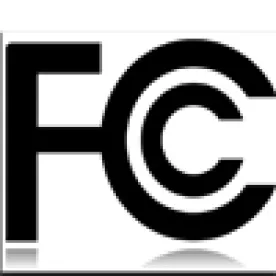On July 10, 2015 the Federal Communications Commission (“FCC”) released a Declaratory Ruling and Order clarifying its interpretation of the Telephone Consumer Protection Act (“TCPA”) and expanding its reach.
The TCPA places certain restrictions on telemarketing calls and on the use of automatic telephone dialing systems (“autodialers”) and artificial or prerecorded voice messages. The TCPA’s restrictions apply both to calls made to residential numbers and to calls made to wireless phones, and companies that violate the TCPA can face large monetary penalties and private lawsuits – including class action suits. We provide a brief summary of the most significant issues presented by the Declaratory Ruling and Order below. Our communications attorneys are available to assist you with compliance going forward.
Definition of Autodialer Clarified. The FCC clarified that the definition of an autodialer includes any equipment that has the capacity to automatically dial telephone numbers, even if that capacity is not currently being used or implemented in the equipment or software. In other words, equipment that lacks the present ability to dial random or sequential numbers, but that iscapable of being modified to do so through changes in either hardware or software, constitutes an autodialer. In addition, companies cannot circumvent the definition of an autodialer by splitting functionality – for example, having one party store the numbers to be called while another party actually places the calls.
Application Providers Minimally Involved in Sending Texts Are Not Callers. Under the TCPA, a caller is a person who takes the steps necessary to physically place a call or who is so involved in placing a call as to be deemed to have made it. Generally, an application provider is not a caller if it is the application’s users who actively choose when, whether, and to whom to send any text messages. Importantly, the FCC will also consider factors such as the extent to which an application provider willfully enables fraudulent spoofing of telephone numbers, assists telemarketers in blocking caller ID, or knowingly allows clients to use its platform for unlawful purposes in determining whether the provider is so involved in placing calls as to be deemed to have made them.
Providing Information About Collect Call Set-Up Does Not Require Consent. A collect calling service provider does not need the prior consent of a called party before connecting a call and providing pre-recorded set-up information so that the called party can determine if he or she wishes to continue to the call. The person who dials the number of the called party or the number of a collect calling service provider in order to reach the called party – not the collect calling service provider who simply connects the call – is the person who makes the call for purposes of the TCPA.
Being on a Person’s Contact List Does Not Amount to Consent to Third Party Calls. A contact’s presence in an application user’s contact list or address book does not, standing alone, establish consent to receive a message from an application the phone user may have downloaded. Application providers may not automatically send out invitational text messages to every contact in an application user’s contact list, unless they have separately acquired the consent of each person in the contact list.
Consumers May Revoke Consent at Any Time. Consumers may revoke, at any time, using any reasonable means, consent they may have previously given to be called at a number. Callers may not control or restrict the means by which a consumer revokes consent.
Consent Needed When Calling Reassigned Numbers. A person making a call subject to the TCPA to a wireless number must obtain consent from the current subscriber (or customary user) of the phone number, not the intended recipient of the call. It is a violation of the TCPA to call someone who has been reassigned the number of a person that previously provided consent to be called. However, callers who make calls to a reassigned number without knowledge of the reassignment are permitted one call to confirm the intended recipient of the call no longer holds the number, and then must cease calls to the new subscriber.
All Written Consent for Telemarketing Calls Must Conform to 2012 Rule Change. In its February 2012 TCPA order, the FCC adopted new rules requiring a specific type of written consent for autodialed calls to wireless numbers and for prerecorded telemarketing calls to either wireless or residential numbers. The FCC granted a limited waiver allowing the Coalition of Mobile Engagement Providers, the Direct Marketing Association, and the two organizations’ members to continue to rely on old nonconforming written consents for the period October 16, 2013, through 89 days following release of the current order.
“On Demand” Informational Text Messages Sent in Response to a Consumer Request Not Subject to TCPA. Text messages that are immediate, one-time replies sent to consumers in response to a consumer-initiated text request, and containing only the information requested by the consumer, do not violate the TCPA. The FCC found that by sending the initiating text, the consumer has consented to receive an informational reply responding to his or her request.
Text Messages, Including Internet-to-Phone Texts, Are Calls Subject to TCPA. The FCC reiterated that text messages are treated as calls subject to the TCPA, and have been so treated since 2003. The FCC also determined that systems that permit the collection and storage of cellular telephone numbers, which can then be associated with the domain names assigned by each wireless carrier for mobile service messages in order to send Internet-to-phone text messages to consumers, constitute autodialers under the TCPA.
Consent Exemption Granted for Certain Financial and Health Related Calls. The TCPA grants the FCC power to exempt from the consent requirement calls made to cellular telephone numbers that are not charged to the consumer. Based on that authority, the FCC exempted from TCPA consent requirements autodialed calls and text messages: (1) intended to prevent fraudulent transactions or identify theft; (2) intended to alert consumers to data breaches at retailers and other businesses, which pose a security threat to the customer’s financial account information; (3) conveying measures consumers may take to prevent identity theft following a data breach; and (4) regarding money transfers. Further, in the health context, the FCC exempted from TCPA consent requirements autodialed calls and text messages “for which there is exigency and that have a healthcare treatment purpose, specifically: appointment and exam confirmations and reminders, wellness checkups, hospital pre-registration instructions, pre-operative instructions, lab results, post-discharge follow-up intended to prevent readmission, prescription notifications, and home healthcare instructions.”
For both the authorized financial and healthcare purposes, the calls and texts must be without charge to the user (including not being charged against any plan limits that apply to the call recipient) and meet certain additional restrictions, including providing an easy method to opt out of receiving future messages.
Carriers May Implement Technology to Block Robocalls. Carriers and interconnected and one-way VoIP service providers may, at a consumer’s request, implement technology to block individual calls or categories of incoming calls that may be part of a mass unsolicited calling event. The consumer must be the one to make the choice to block the calls and must be adequately informed of the risks of inadvertent blocking. Carriers and other providers are not, however, required to offer call blocking to consumers.




 />i
/>i

